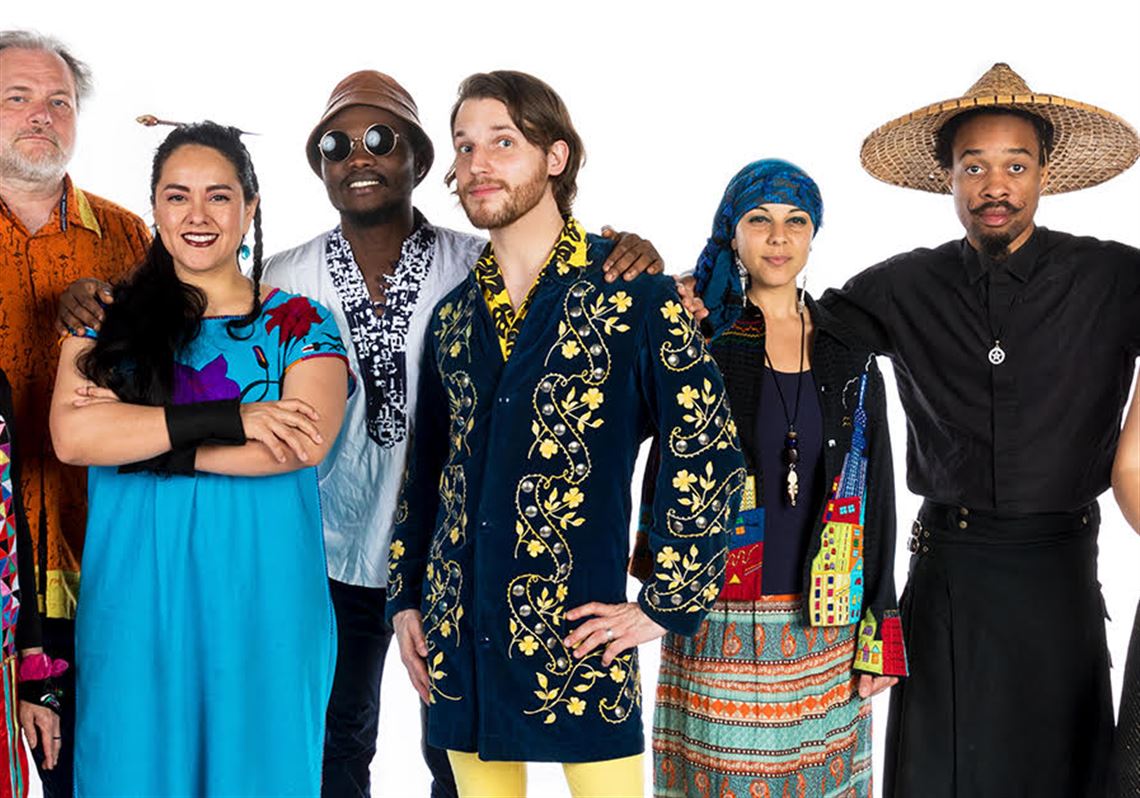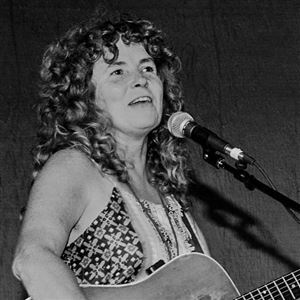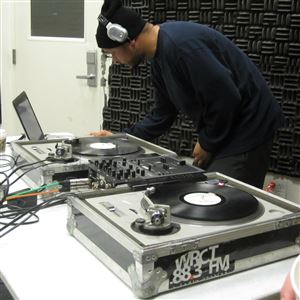The instrumental core of Afro Yaqui Music Collective — hard-driving, horn-powered free-jazz/funk with sudden twists and turns — is riveting enough stand on its own.
Instead, it’s just the powerful baseline for a mind-expanding mix of Latin American and Afro-Cuban vocal stylings, Chinese opera and spoken-word hip-hop, coupled with the group’s fierce stances on ecosocialism, racial justice, LGBTQ rights, migrant rights and women’s empowerment, for starters.
Afro Yaqui began with baritone saxophonist Ben Barson moving here from New York City in 2014 with his wife, Gizelxanath Rodriguez, a singer from Mexico influenced by Nueva Cancíon and artists like Violeta Parra. What brought them here was their work with Black Urban Gardeners and Farmers Co-op (BUGFPC) in community farming.
“I think it’s really important to try to leave an ecological footprint that’s going to benefit future generations,” Barson says, adding a warning of food insecurity in our lifetime. “There’s a lot of good energy around this and a lot of initiative. It’s one of the most exciting things happening in Pittsburgh, to be honest. It connects Black Lives Matter and ecological work.”
What began as a musical duo in 2016 grew into a collective operating in the spirit of Barson’s mentor, the late Fred Ho, a Harvard-educated Chinese-American saxophonist and Marxist social activist who died in 2014 at 56.
“He wrote music that sounded like Charles Mingus combined with Chinese Opera,” Barson says, “because he wanted to create a musical form that put his culture and dialogue with jazz and Black American culture. So his group was called the Afro Asian Music Ensemble, and he also had a really strong commitment to civil rights and black power politics.
“I kind of lived this life with him, actually, I was his understudy and I met all these folks in New York through him and folks in Pittsburgh that were some of his contacts and he had the vision of being self-sufficient in terms of growing your own food, creating our own clothing and creating our own music. Something like a modern-day commune that was also artistically cutting edge.”
Along with Rodriguez and Barson, the 2018 winner of the The ASCAP Foundation Johnny Mandel Prize for jazz composers under 30, the collective’s core members include Charlotte Hill O’Neal (a former Black Panther and community organizer now living in Tanzania), Nejma Nefertiti (a New York-based rapper), Hugo Cruz (a drummer and percussionist from Havana), Julian Powell (a hip-hop drummer), Yang Jin (a pipa player who has toured with Yo-Yo Ma and others), Beni Rossman, Roger Romero, Randraiz Wharton, Samuel Okoh-Boateng, Alec Redd, and Mimi Jong.
It debuted in 2019 with “Mirror Butterfly: the Migrant Liberation Movement Suite,” a jazz-opera based on resistance movements in Mexico, Syria, Kurdistan and Tanzania.
Afro Yaqui now follows that with “Maroon Futures,” a collection of six songs that have been staples in the band’s live set.
“We never really recorded these songs that we’ve been playing for years, songs that we’ve made our sonic brand,” Barson says. “I think [our fans] are going to be really happy with the sound quality. It’s really clean and pristine and exciting, the drums are really forward, the horns sound great, Giselle’s voice sounds great. But the other thing is that the arrangements are different — in the horn lines there are new harmonic substitutions and ideas.”
Along with reinventing the repertoire, he says, “the other idea is we’re really trying to bring together different peoples and different traditions that are fighting white supremacy, that are fighting the destruction of the planet, that are fighting patriarchy.”
The album is dedicated to Russell “Maroon” Shoatz, the former Black Panther who spent 22 years in solitary confinement after being convicted for the 1970 murder of a Philadelphia police officer. Shoatz’s nickname is the term used for runaway slaves who created their own independent settlements.
Barson, who was part of the campaign to get Shoatz back into the prison’s general population and now lobbies for his release, believes the 77-year-old, who has endured colon cancer and COVID, was framed.
“He is an amazing intellectual,” Barson says of Shoatz, whose work was compiled in the book “Maroon the Implacable: The Collected Writings of Russell Maroon Shoatz.”
He had Shoatz in mind with the track “La Cigarra,” jazz-fusion treatment of a traditional Mexican song about the cicada emerging from years underground to sing one last song.
The album begins with “Nonantzin,” a dynamic opener that introduces the squonk of Barson’s sax offset with Rodriguez’s soaring soprano in the Uto-Aztec language. It moves through “Sister Soul,” a matriarchal anthem with a collision of all three vocalists, before Nefertiti takes over with her on the funky hip-hop jam “Ya Habibi.”
You won’t hear many 10-songs with six-minute intros but that’s what they pull off on “We Refuse to be Used and Abused,” an epic jam based on Ho’s song of the same title that evolves into Nefertiti’s militant plea for workers’ rights.
“There’s sort of this fine line,” Barson says, “between our social justice movement work and our musical work and that’s the concept of the band — we want to bring those spaces in dialogue with each other.”
By integrating it into the band, they can do real work -- whether it be in the dirt, with activism or bringing social justice organizations to shows — rather than just virtue signal.
“People have compared being a jazz musician to entering the priesthood because of the energy and time it takes and the often meager material dividend that it pays,” Barson says. “So, we don’t always have the bandwidth or the capacity, because being an organizer, being an activist and actually doing it, and not just posting stuff on Facebook, it takes time. It takes a lot of time to coordinate people, to develop strategies, to run campaigns, to find meaningful ways to empower people and not just, you know, run your mouth.”
“Maroon Futures” will be released on Friday on streaming services.
First Published: April 1, 2021, 10:00 a.m.
Updated: April 1, 2021, 10:11 a.m.



















